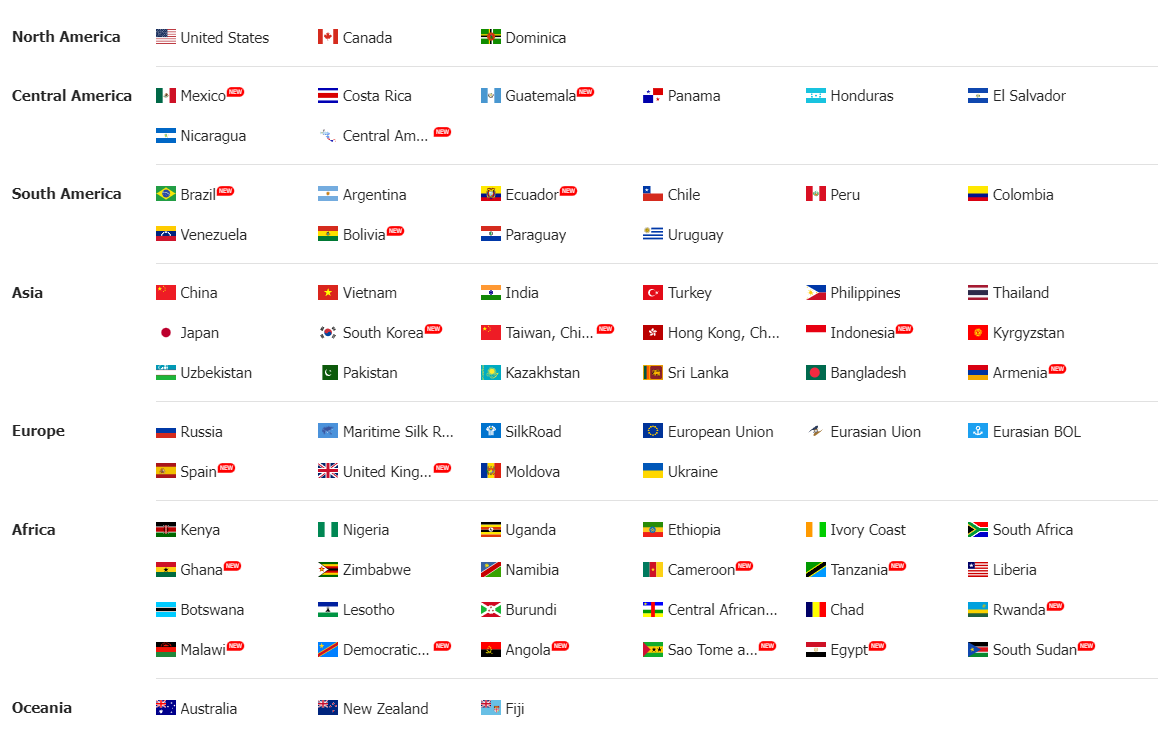 Trade Data
Trade Data
 23-07-2024
23-07-2024
In today's interconnected global economy, businesses engaged in international trade can significantly benefit from leveraging shipping data to optimize operations and enhance decision-making. Shipping data encompasses a wide range of information collected throughout the transportation process, from the point of origin to the final destination. By analyzing and utilizing this data effectively, businesses can gain valuable insights that lead to improved efficiency, reduced costs, and enhanced customer satisfaction. Here’s how shipping data can be utilized to achieve these goals:

1. Optimizing Supply Chain Management:
Shipping data provides real-time visibility into the movement of goods across various stages of the supply chain. By analyzing historical shipping patterns and current shipment statuses, businesses can identify bottlenecks, streamline processes, and optimize inventory management. This enables better forecasting of demand and ensures that products are available when and where they are needed, reducing stockouts and overstock situations.
2. Enhancing Customer Experience:
Timely and accurate delivery is crucial for customer satisfaction. By utilizing shipping data, businesses can track shipments in real time and provide customers with accurate delivery estimates. Proactive communication regarding shipment status and potential delays helps manage customer expectations and improves overall satisfaction levels.
3. Cost Optimization:
Shipping costs can constitute a significant portion of overall expenses for international businesses. Analyzing shipping data allows companies to identify cost-saving opportunities such as optimizing shipping routes, consolidating shipments, and negotiating better rates with carriers based on volume and frequency of shipments.
4. Risk Management and Compliance:
Shipping data can also aid in managing risks associated with international trade, such as customs delays, regulatory compliance, and geopolitical factors. By monitoring shipping data, businesses can anticipate potential challenges and implement strategies to mitigate risks, ensuring smoother and more compliant cross-border transactions.
5. Performance Tracking and KPIs:
Utilizing shipping data enables businesses to establish key performance indicators (KPIs) related to logistics and supply chain operations. Metrics such as on-time delivery rates, transit times, and shipment accuracy can be tracked and analyzed to measure performance against benchmarks and identify areas for improvement.
6. Market Insights and Strategic Planning:
Shipping data provides valuable insights into market trends and consumer behavior by analyzing shipping volumes and destinations. This information can inform strategic decision-making, such as market expansion opportunities, product localization strategies, and entering new markets based on demand patterns observed in shipping data.
7. Predictive Analytics and Future Planning:
Leveraging advanced analytics on shipping data allows businesses to predict future demand, optimize inventory levels, and plan for seasonal fluctuations or supply chain disruptions. Predictive models based on historical shipping data can help businesses make informed decisions and adapt quickly to changing market conditions.
Conclusion:
Effectively harnessing shipping data is crucial for international businesses aiming to stay competitive and resilient in today's dynamic market landscape. By leveraging this data to optimize supply chain management, enhance customer experience, and drive strategic decision-making, businesses can achieve operational excellence, reduce costs, and ultimately improve their bottom line. Embracing the power of shipping data not only enhances efficiency but also positions businesses for sustainable growth in the global marketplace.
Tendata iTrader compiles trade data from 218 countries and provides detailed information on over 130 million import-export enterprises worldwide.
With a daily influx of 10 billion trade records, Tendata efficiently delivers contact details for over 700 million top-level executives and decision-makers in the import-export industry through advanced filtering. This includes email addresses, phone numbers, social media profiles, and more. Additionally, we offer synchronized company profiles, product images, and website links, along with 19 types of visual reports. These tools assist foreign trade enterprises in precise market positioning and thorough market analysis, enabling you to quickly find the exact buyers and suppliers you need.
(>> Visit the Official Shanghai Tendata Website for More Details <<)

Category
Leave Message for Demo Request or Questions


 T-info
T-info T-discovery
T-discovery

 My
Tendata
My
Tendata Market Analysis
Market Analysis Customer
Development
Customer
Development Competitor
Monitoring
Competitor
Monitoring Customer Relationship
Customer Relationship




































































































































